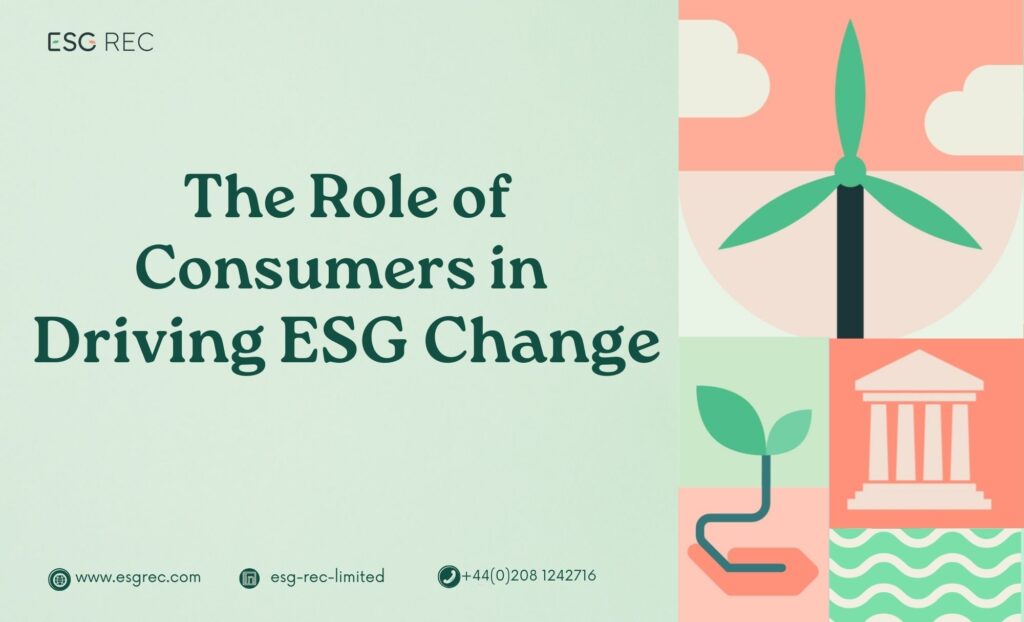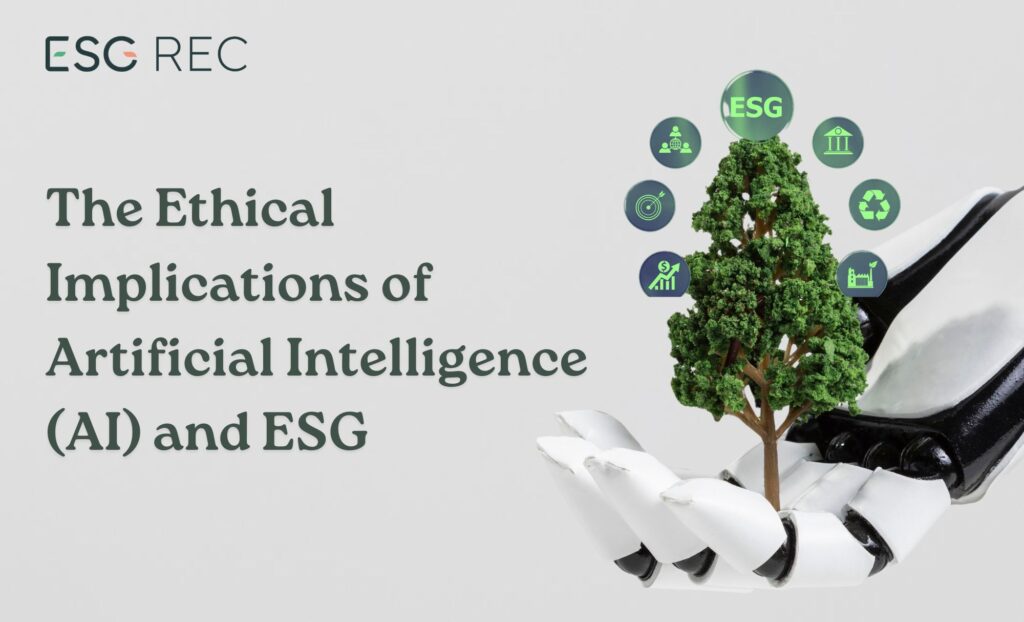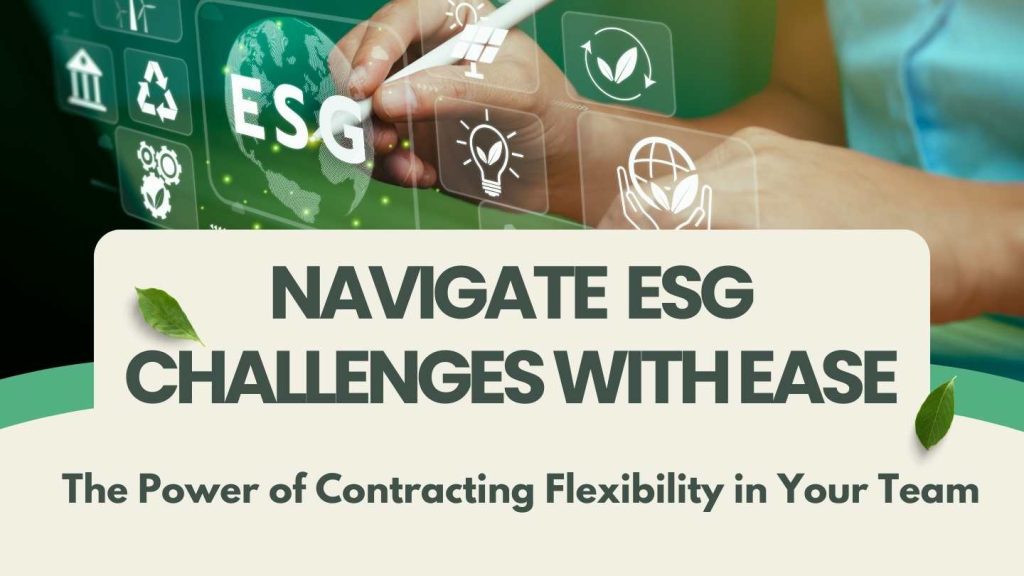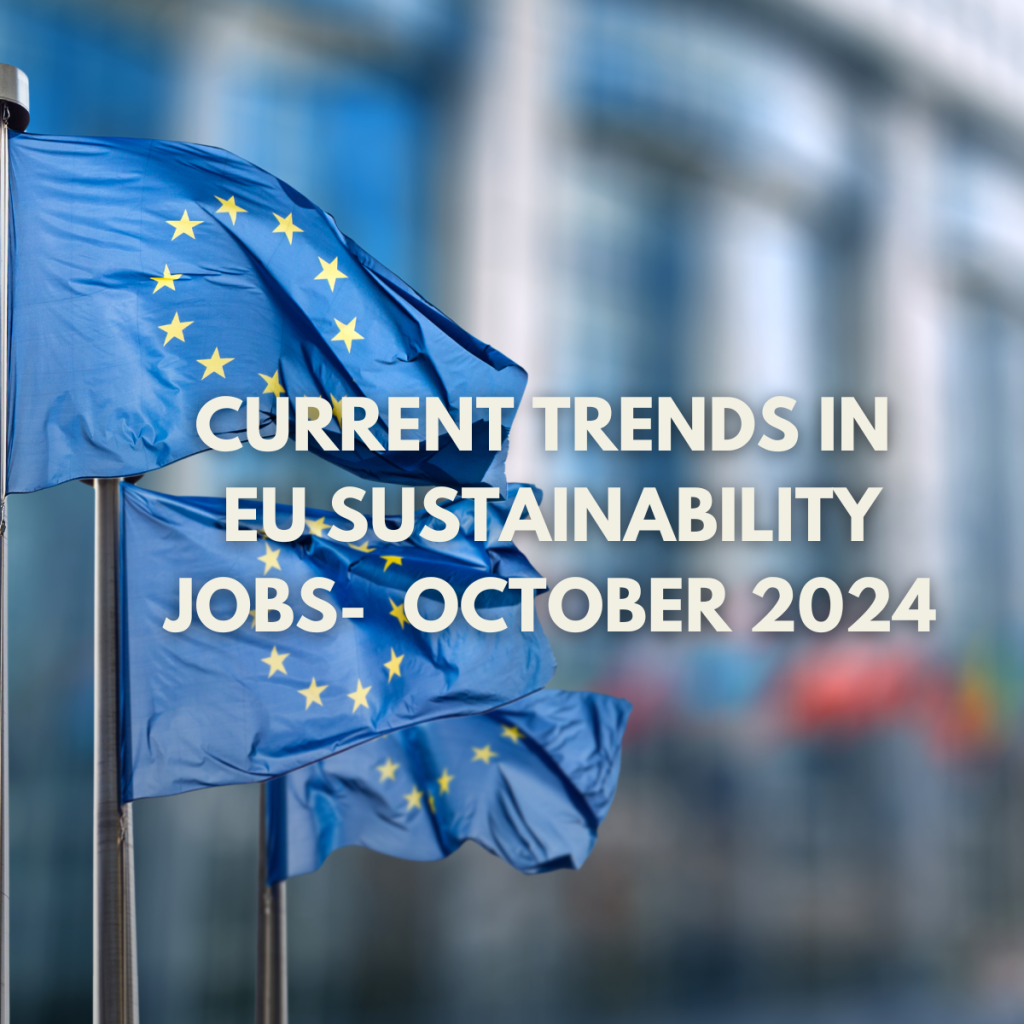Key ESG Certifications to Advance Your Sustainability Career in the UK
The demand for skilled sustainability experts is booming as the focus on addressing climate change and other environmental issues grows. However, with the current shortage of “green talent,” there is a unique opportunity for professionals to gain ESG certifications to enhance their qualifications and stand out in the UK job market.
As the UK moves closer to its net-zero targets and emphasizes corporate responsibility, the need for qualified ESG professionals becomes more urgent. Today’s companies are increasingly embracing sustainable practices and finding meaningful ways to demonstrate their commitment to environmental, social, and governance (ESG) goals. To meet these demands, professionals across industries can benefit from an in-depth understanding of ESG principles—whether they work in finance, supply chain management, legal, manufacturing or beyond.
Many business leaders and HR departments are supporting green upskilling, but professionals can also take proactive steps to advance their sustainability education. Pursuing ESG training and certification not only enhances employability but also adds credibility in this growing sector.
Here are some of key certifications that can help UK professionals build a competitive edge in the sustainability job market
1. Institute of Environmental Management and Assessment (IEMA) Certification
The IEMA is one of the UK’s leading environmental and sustainability bodies, offering several ESG certifications for professionals at all career stages. From introductory courses on environmental awareness to advanced qualifications in sustainability strategy, IEMA certifications are widely recognized across industries. They cover essential topics like environmental management systems, auditing, and sustainability leadership, making them ideal for ESG professionals seeking comprehensive knowledge in the UK market.
Ideal for: Sustainability managers, CSR professionals, environmental consultants
[Visit IEMA]
2. Carbon Literacy Project Certification
With the UK government’s commitment to achieving net-zero emissions, understanding carbon impact is crucial. The Carbon Literacy Project provides training designed to equip professionals with practical skills for reducing carbon footprints within organizations and communities. Certification through this project showcases a candidate’s understanding of climate change science and actionable strategies for reducing emissions, which is invaluable for UK professionals focused on sustainability.
Ideal for: Sustainability officers, corporate responsibility professionals, HR and operations managers.
[Visit the Carbon Literacy Project]
3. Global Reporting Initiative (GRI) Certification
GRI standards are widely used by UK companies for transparent and structured sustainability reporting. This certification enables professionals to guide organizations in ESG reporting on environmental, social, and governance issues. GRI-certified experts are highly sought after, as companies in the UK increasingly prioritize corporate responsibility and transparency.
Ideal for: Corporate reporters, CSR specialists, public relations and communications professionals.
[Visit GRI]
4. CFA UK Certificate in ESG Investing
For UK investment professionals, the CFA UK Certificate in ESG Investing is essential. This certification provides insights into integrating ESG factors into investment strategies, covering topics like ESG analysis, regulatory frameworks, and risk assessment. It’s especially relevant for asset managers, financial analysts, and portfolio managers handling sustainable investments.
Ideal for: Investment analysts, portfolio managers, asset managers
[Visit CFA UK]
5. University of Cambridge Institute for Sustainability Leadership (CISL) Courses
The University of Cambridge offers respected sustainability programs through its Institute for Sustainability Leadership (CISL). These courses provide a deep dive into sustainable business practices, covering sustainable finance, corporate responsibility, and leadership in sustainability. Although not formal certifications, these programs are valued across the UK and Europe, adding credibility to any CV.
Ideal for: Senior management, corporate strategists, sustainability advisor.
[Visit Cambridge CISL]
6. Climate-Related Financial Risk (CFR) Certification by GARP
In response to the UK’s heightened focus on climate-related financial risk, the Global Association of Risk Professionals (GARP) offers certification that addresses this area. Training covers measuring, managing, and disclosing climate risks, making the CFR certification ideal for UK professionals in risk management, asset management, and finance. This qualification is particularly valuable as climate risk reporting regulations grow in the UK.
Ideal for: Risk managers, financial analysts, asset managers.
[Visit GARP]
7. BREEAM (Building Research Establishment Environmental Assessment Method) Certification
BREEAM is a globally recognized certification for sustainable building and development projects, originating in the UK. This certification sets the standard for assessing, rating, and certifying building sustainability. It’s essential for professionals in real estate, urban planning, or construction, where sustainable practices are increasingly required by UK regulations and environmental commitments.
Ideal for: Architects, real estate developers, construction managers.
[Visit BREEAM]
Choosing the Right ESG Certification for Your UK Career
Selecting the most suitable ESG certification is a personalized decision that hinges on various factors, including your current skill set, career aspirations, and the specific industry in which you operate.
For example, financial professionals who are involved in investment analysis or portfolio management may find the CFA UK Certificate in ESG Investing particularly beneficial. This certification equips them with the knowledge and skills necessary to integrate ESG factors into investment strategies, enhancing their ability to make informed decisions that align with sustainable finance practices.
On the other hand, individuals working in real estate or construction might benefit more from pursuing BREEAM certification. This globally recognized standard assesses the sustainability performance of buildings and infrastructure, making it an invaluable credential for professionals aiming to improve sustainability in the built environment. BREEAM certification not only demonstrates a commitment to eco-friendly building practices but also enhances a professional’s credibility within these sectors.
Ultimately, choosing the right certification involves assessing how it aligns with your current role, the skills you wish to develop, and the demands of your industry, ensuring that you make an informed decision that supports your career growth in the ESG field.
The Value of ESG Certifications for UK Employers
UK employers are actively seeking candidates with ESG expertise who can apply sustainable practices within national regulations and industry standards. Obtaining one or more of these certifications demonstrates your commitment to professional development and your readiness to address sustainability challenges in the UK.
By investing in an ESG certification, professionals in the UK can improve their qualifications, remain competitive, and contribute to the nation’s journey toward a sustainable, low-carbon future.
To stay updated on the latest ESG trends and opportunities, visit www.esgrec.com. Also, don’t miss the chance to attend our free webinar, where you can learn more about sustainability practices. Join us for a valuable opportunity to gain expert insights into the latest sustainability trends and essential risk management strategies.
What to Expect:
– Cutting-edge discussions on sustainability practices
– Effective risk management techniques for ESG professionals
– Key takeaways to enhance your organization’s sustainability journey
Don’t miss this opportunity to stay ahead of industry trends and deepen your expertise!
REGISTER HERE: https://esgrec.com/sustainability-and-carbon-accounting-essential-insights-for-the-esg-workforce/





